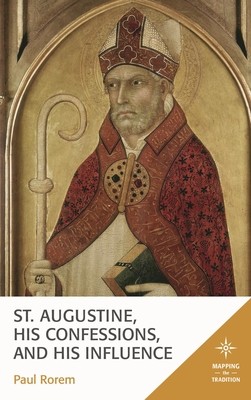
- We will send in 10–14 business days.
- Author: Paul Rorem
- Publisher: FORTRESS ACADEMIC
- ISBN-10: 197870237X
- ISBN-13: 9781978702370
- Format: 15.2 x 22.9 x 1.1 cm, hardcover
- Language: English
- SAVE -10% with code: EXTRA
Reviews
Description
This book introduces Augustine of Hippo and his influence on Christian theology. Part One works through all thirteen books of the Confessions, introducing the life and thought of the bishop of Hippo with commentary on frequent but brief quotations. The Confessions reveal Augustine's major doctrinal concerns, some of them explicitly and thoroughly (such as the Manichees, Platonists, scripture), others implicitly (monasticism, Donatism, ministry), and some in passing (Trinity) or as a preview (Pelagians). Part Two sketches the medieval reception of the Augustinian theological legacy, not chronologically but topically, in the order of the concerns in the Confessions, such as original sin, St. Monica, medieval Manichees, monastic communities, new Donatists, Neo-Platonism, the introspective soul, symbolic scripture, the Trinity, and above all the recurring Pelagian controversies over free will and grace, election and predestination, that continued into the Reformation.
EXTRA 10 % discount with code: EXTRA
The promotion ends in 20d.05:32:25
The discount code is valid when purchasing from 10 €. Discounts do not stack.
- Author: Paul Rorem
- Publisher: FORTRESS ACADEMIC
- ISBN-10: 197870237X
- ISBN-13: 9781978702370
- Format: 15.2 x 22.9 x 1.1 cm, hardcover
- Language: English English
This book introduces Augustine of Hippo and his influence on Christian theology. Part One works through all thirteen books of the Confessions, introducing the life and thought of the bishop of Hippo with commentary on frequent but brief quotations. The Confessions reveal Augustine's major doctrinal concerns, some of them explicitly and thoroughly (such as the Manichees, Platonists, scripture), others implicitly (monasticism, Donatism, ministry), and some in passing (Trinity) or as a preview (Pelagians). Part Two sketches the medieval reception of the Augustinian theological legacy, not chronologically but topically, in the order of the concerns in the Confessions, such as original sin, St. Monica, medieval Manichees, monastic communities, new Donatists, Neo-Platonism, the introspective soul, symbolic scripture, the Trinity, and above all the recurring Pelagian controversies over free will and grace, election and predestination, that continued into the Reformation.


Reviews